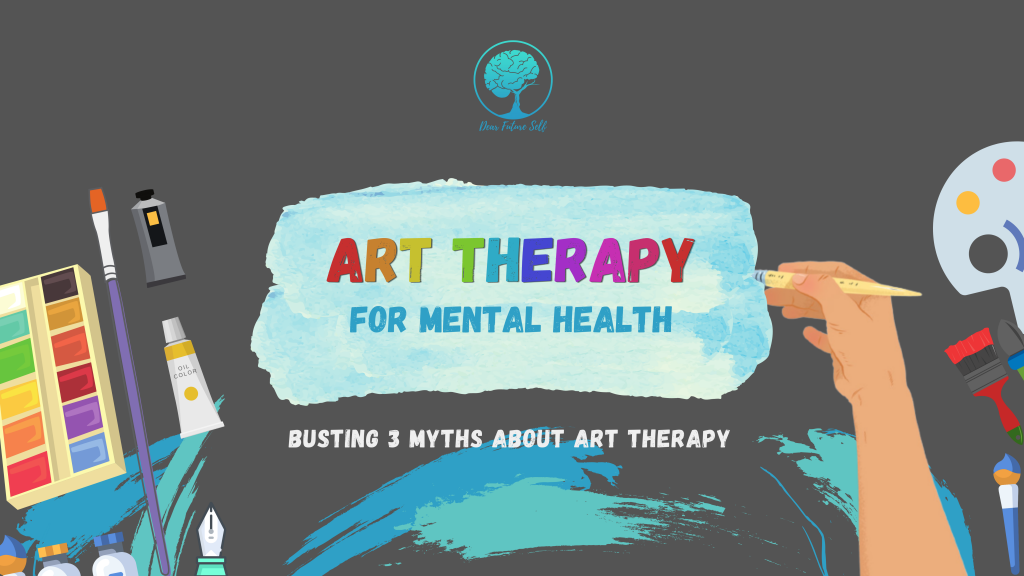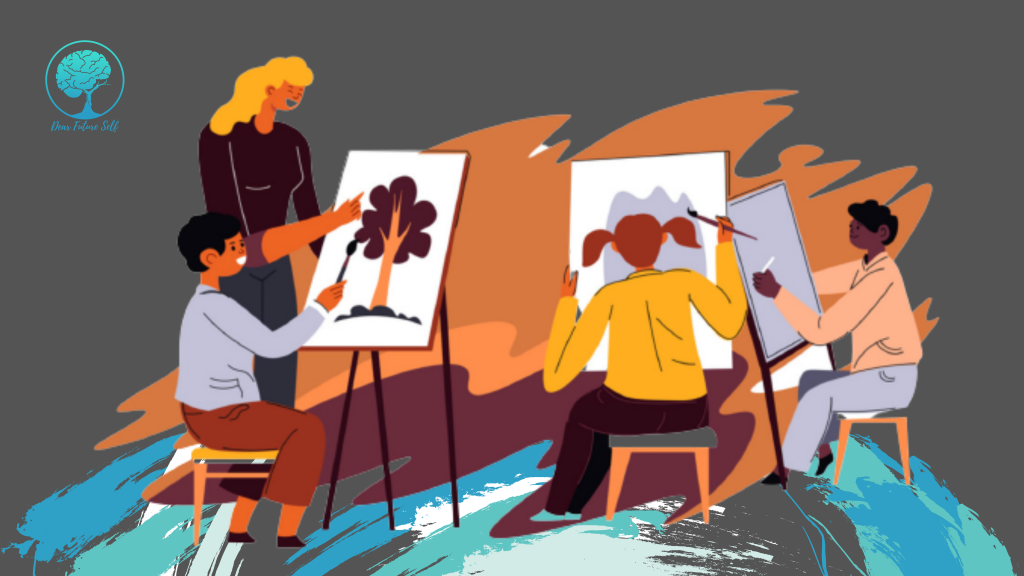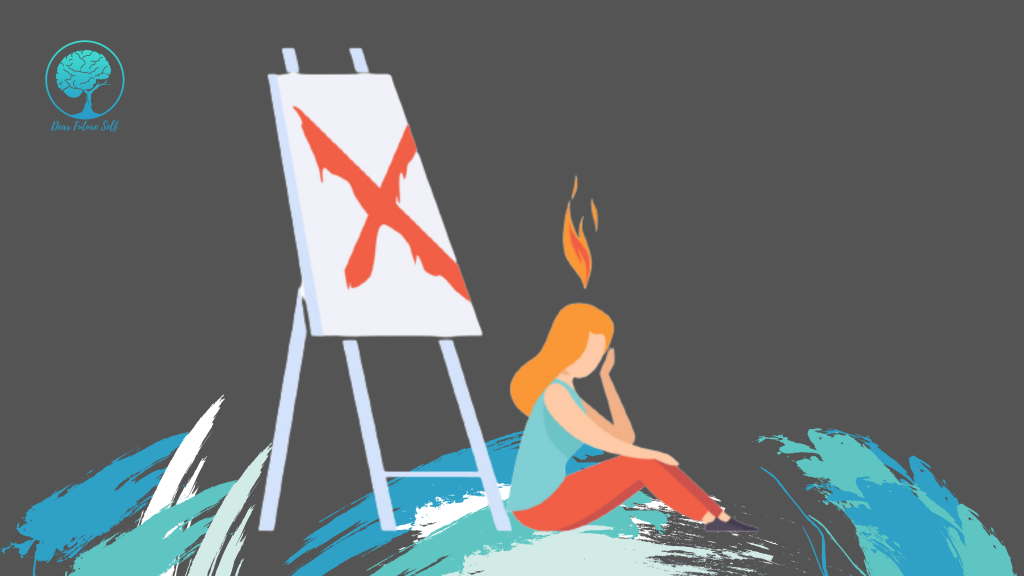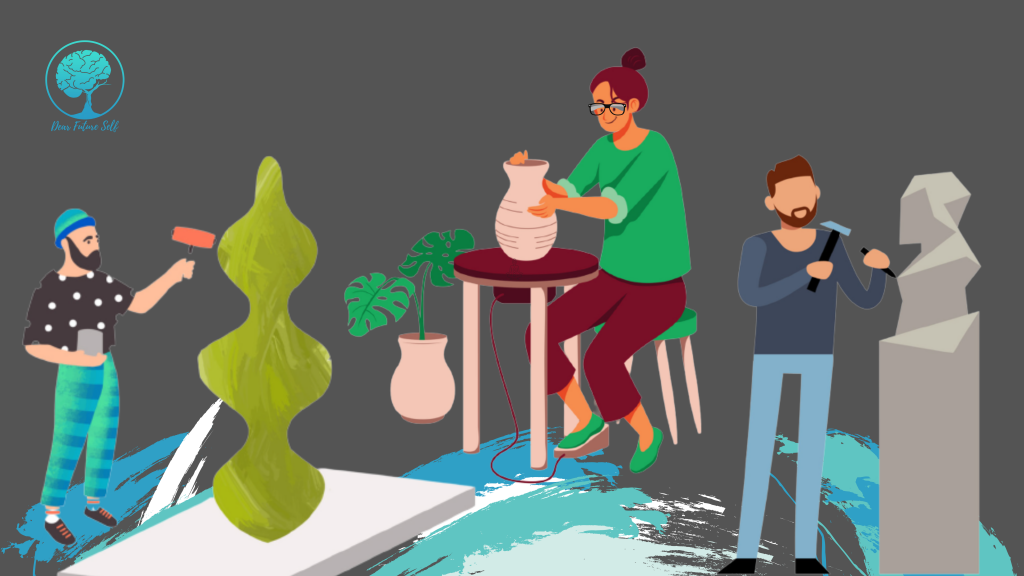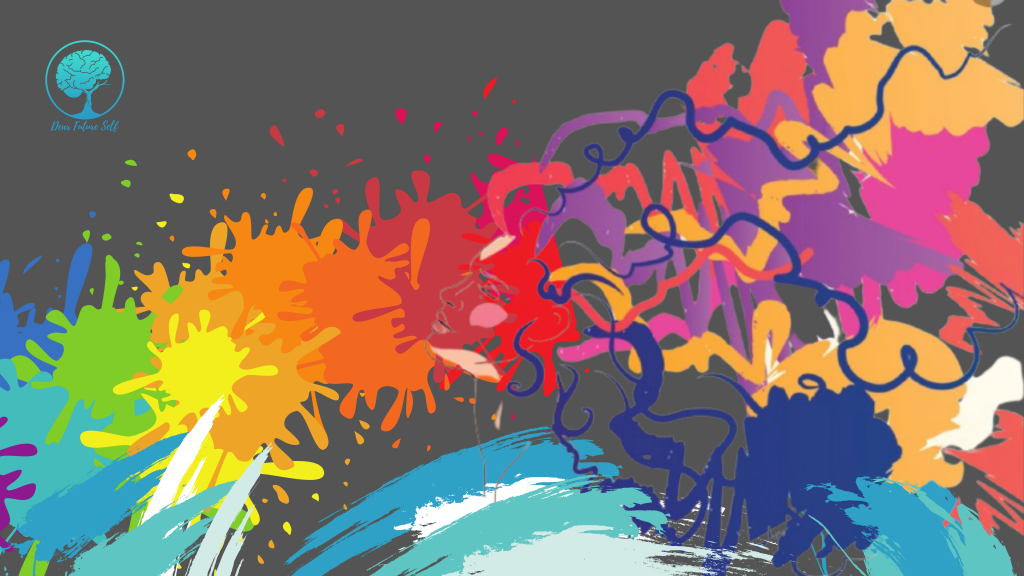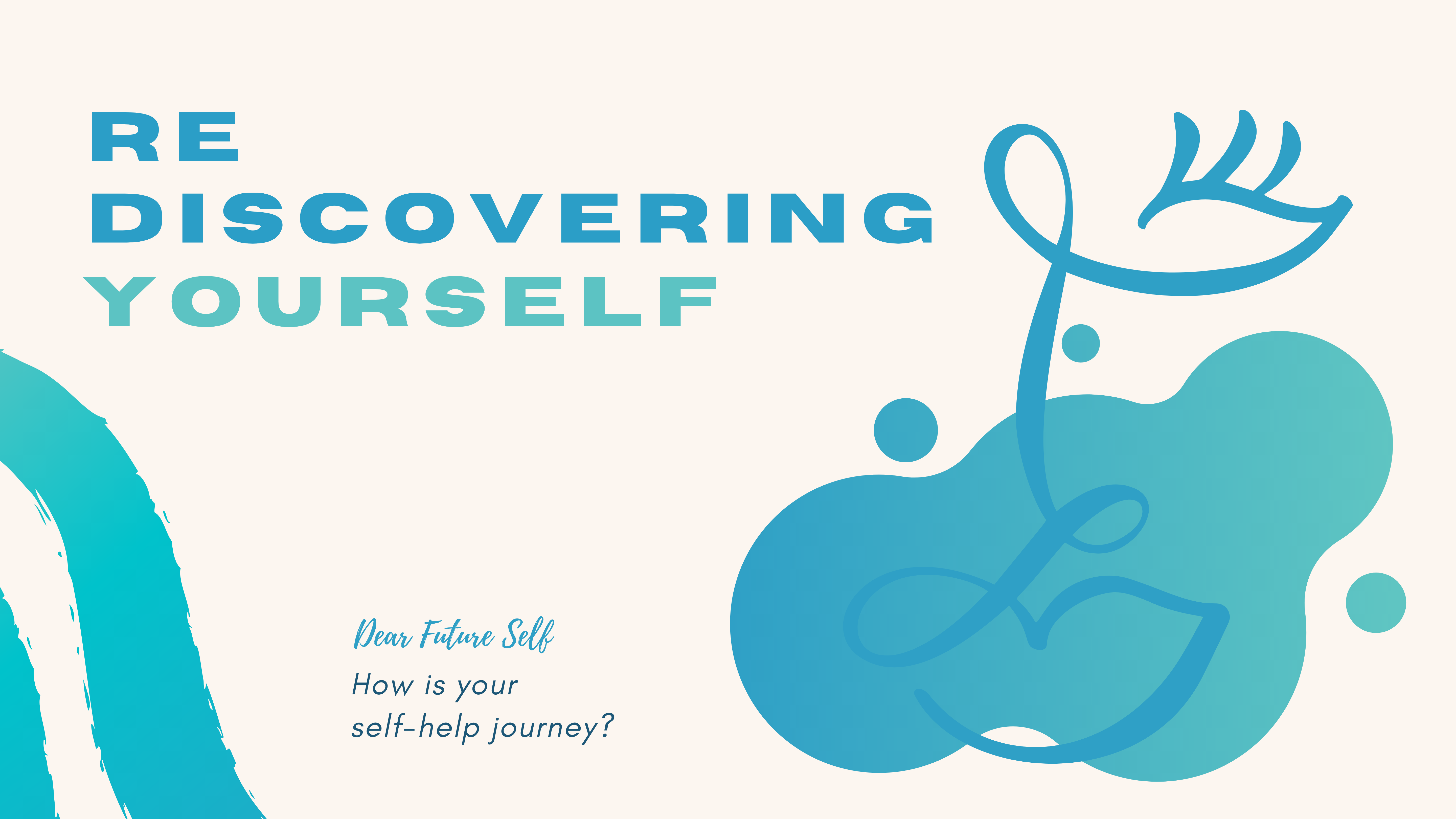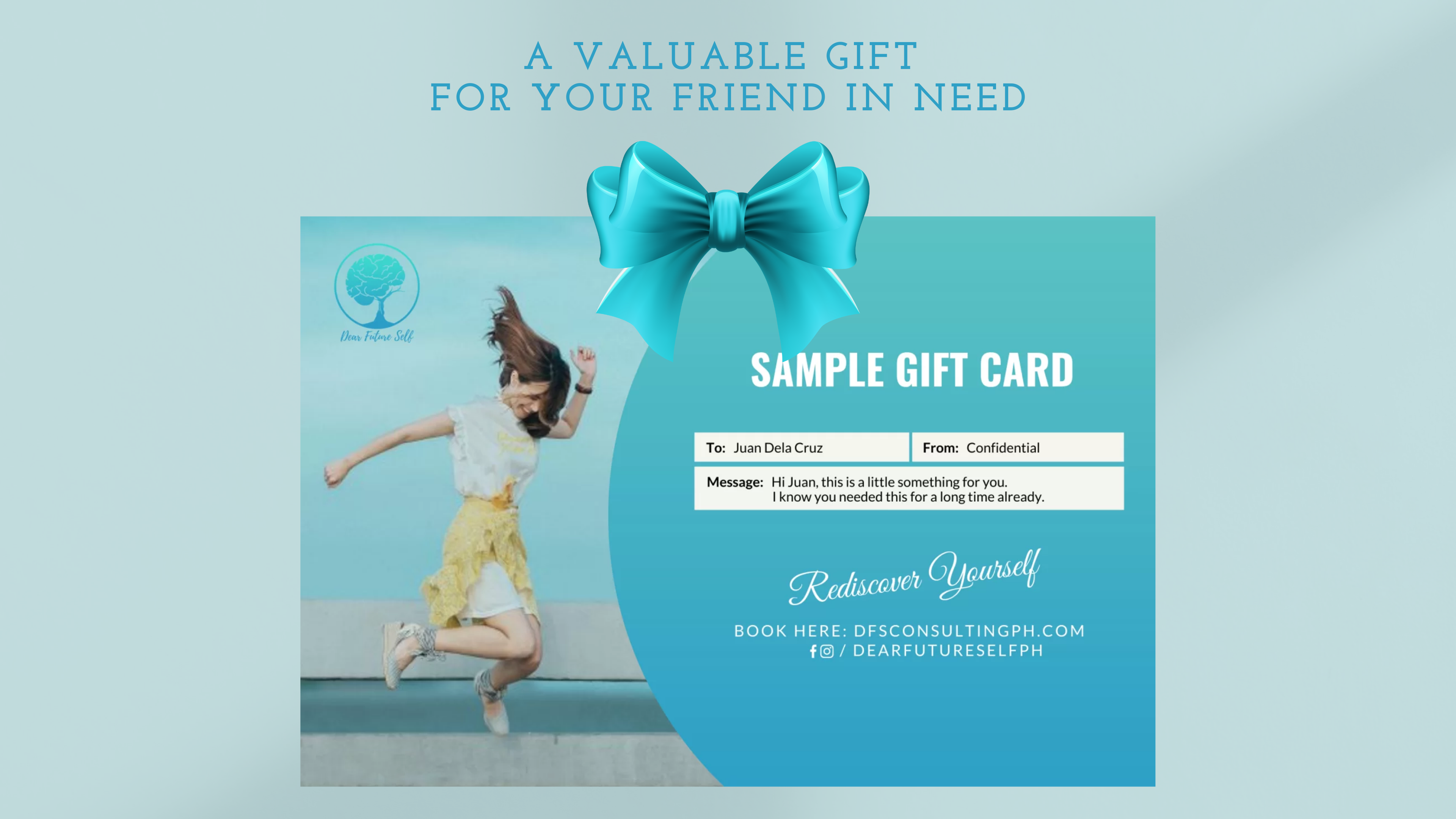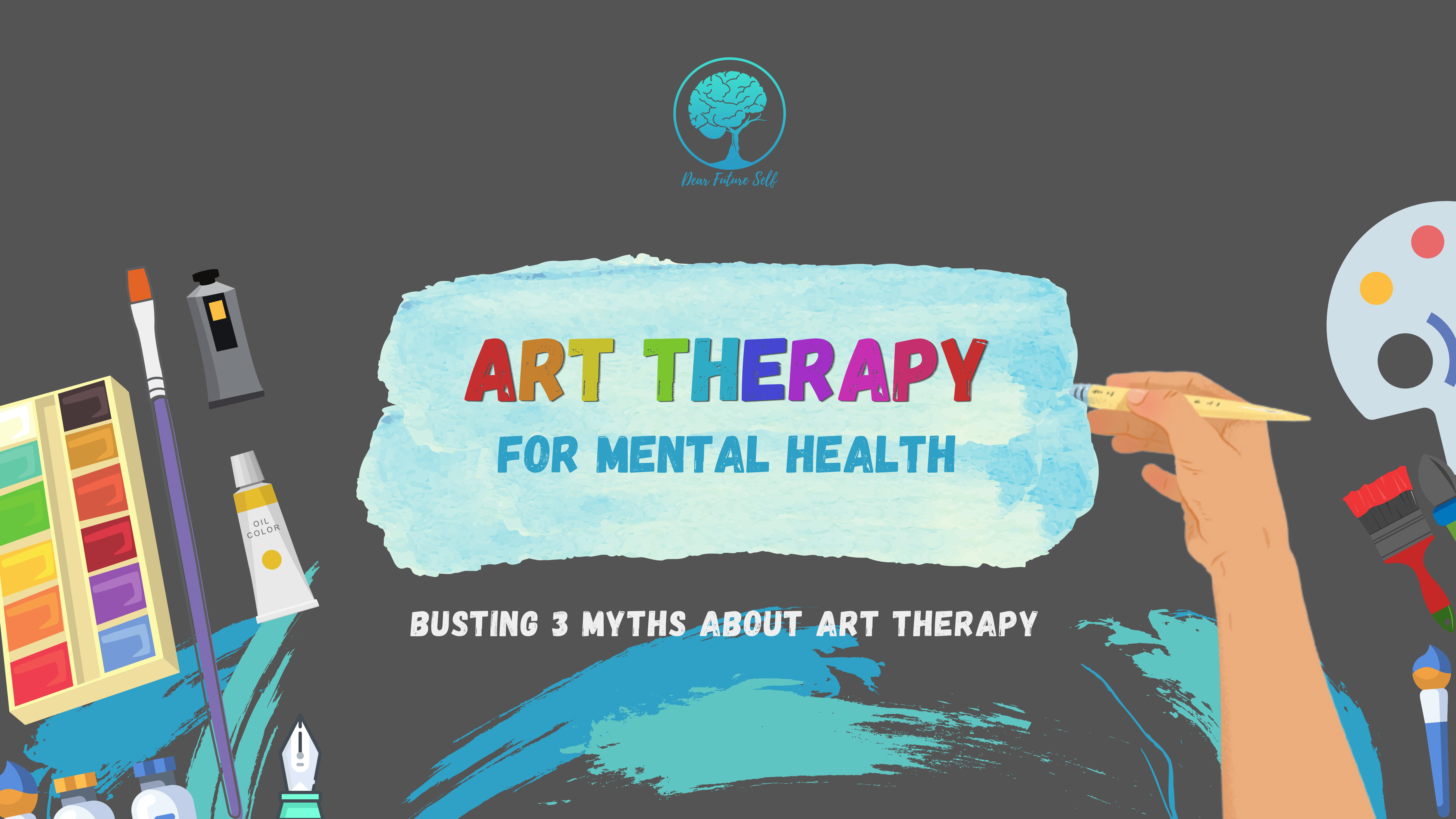
26 Aug Art Therapy for Mental Health Myth? or Fact?
Busting 3 Myths About Art Therapy
Art therapy has become an increasingly recognized way to support mental health and well-being. It offers people a chance to explore their emotions and experiences through creative expression guided by trained professionals. Despite its growing popularity, some misconceptions still surround what art therapy really is and who it is for. This article aims to clarify three common myths about art therapy.
MYTH 1: IT’S ONLY FOR ARTSY PEOPLE
Many people worry they need to be skilled artists to benefit from art therapy. However, art therapy does not require any prior artistic talent or training. The goal is not to create a perfect piece of art but to express your inner thoughts and feelings honestly. Even those who consider themselves non-artistic can find it helpful. In fact, professional artists may find it challenging because art therapy asks them to let go of control and focus on personal expression rather than technical skill. According to Dr. Tammy Shella, “We all draw. It’s a natural form of expression.” For individuals dealing with trauma, art can access parts of the brain where words fall short, supporting healing in ways talk therapy alone might not.
MYTH 2: IT’S JUST DOODLES, FINGERPAINT, AND ABSTRACT ART
While art therapy often involves activities like painting, doodling, and creating abstract pieces, it is much more diverse than that. Licensed art therapists design sessions based on their clients’ unique needs and goals, incorporating a wide variety of materials and creative processes. The emphasis is on meaningful engagement and positive experiences rather than the style or appearance of the artwork.
MYTH 3: IT DOESN’T HELP
Some people think art therapy lacks structure or effectiveness compared to other forms of therapy because it is flexible and uses many different tools. However, this flexibility is one of its strengths. Art therapy provides sensory, symbolic, and kinesthetic ways to communicate feelings that are difficult to express verbally. It empowers individuals to explore and transform their experiences in a safe, supportive environment. Dr. Shella explains, “Opening up through art helps people realize they are not alone in their feelings, which promotes healing.” Benefits include personal growth, increased confidence, and stress relief. Trying creative activities—even if intimidating at first—can foster courage and patience. Tools like vision boards and affirmation art can offer support during difficult times, while expressive art forms like painting or sketching provide a healthy outlet for emotions.
Art therapy is not limited to any one group of people or artistic ability. As awareness grows, it continues to prove its value as a supportive approach to mental health care. So, what creative activity would your ![]() wants you to try?
wants you to try?
References:
Tee, M. L., Tee, C. A., Anlacan, J. P., Aligam, K. J. G., Reyes, P. W. C., Kuruchittham, V., & Ho, R. C. (2020, December 1). Psychological impact of COVID-19 pandemic in the Philippines. Journal of affective disorders. https://www.ncbi.nlm.nih.gov/pmc/articles/PMC7444468/
Fenneld. (2020, October 23). How art can help you cope with the pandemic. Cleveland Clinic. https://health.clevelandclinic.org/how-art-can-help-you-cope-with-the-pandemic/
Self-Help Corner
Seek Professional Help

Gift Certs & Self-Care Package


